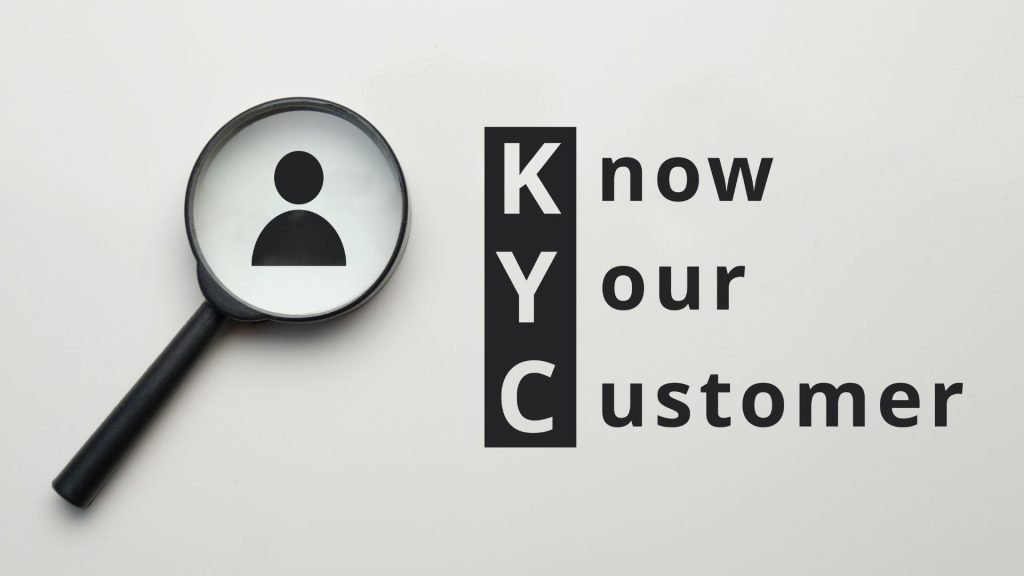In the world of business, a critical concept known as KYC, or “Know Your Customer,” plays a vital role. This regulation applies to a wide range of companies, particularly those that handle significant volumes of financial transactions and payments.
KYC essentially mandates that these businesses establish a clear understanding of their clientele. This involves verifying customer identities, assessing potential risks associated with the customer relationship, and understanding their financial background. By implementing KYC procedures, companies can ensure they are doing business with legitimate entities and mitigating the risks of financial crime. This includes preventing money laundering, terrorist financing, and fraud. KYC compliance helps to foster a more secure and transparent financial ecosystem, protecting both businesses and their customers.
A Guide to KYC Checks
KYC (Know Your Customer) procedures serve a dual purpose: verifying your identity and assessing the potential risks associated with your financial profile. This information can be helpful for you to understand what to expect during a KYC check and why it’s important.
This typically involves confirming your name, date of birth, address, and government-issued ID. By verifying your identity, companies can prevent fraud and protect themselves from doing business with fictitious entities.
The second function of KYC procedures delves deeper, analyzing your financial profile to assess potential risks. This might involve checking your credit history, source of income, and transaction patterns. By understanding your financial background, companies can identify potential red flags associated with money laundering, terrorist financing, or other illegal activities. This risk assessment helps businesses make informed decisions about their clientele and mitigate the chances of being unwittingly involved in financial crimes.
Overall, KYC procedures play a crucial role in safeguarding both businesses and their customers. By verifying identity and assessing financial risk, KYC fosters a more secure and transparent financial ecosystem for everyone involved.
KYC Checks: A Comprehensive Overview

While KYC checks might be commonly associated with banks, their reach extends far wider. The following highlights just a few industries where KYC procedures are routinely employed.
KYC in the Professional Services Sector
Due to the nature of their work, professions like lawyers, accountants, and real estate agents frequently handle significant sums of money and often manage trust accounts. This close association with financial matters necessitates a high level of vigilance when dealing with clients. As a result, these professions typically require thorough KYC checks, often involving in-depth questioning. The intensity of these checks can vary depending on the specific company’s compliance standards, regional regulations, and the local interpretation of relevant laws.
Professions like lawyers, accountants, and real estate agents occupy a unique space where their work intersects heavily with financial matters. Due to the significant sums of money they often handle and the responsibility of managing trust accounts, these professionals are entrusted with a high degree of financial vigilance. This necessitates a robust Know Your Customer (KYC) process to ensure the legitimacy and transparency of their clients’ activities.
These KYC checks typically involve in-depth questioning to gather detailed information about the client’s identity, source of funds, and the purpose of the transaction. This allows the professional to identify potential red flags that might indicate money laundering, terrorist financing, or other financial crimes.
The intensity of these KYC checks can vary depending on several factors. Stringent compliance standards set by the company itself can necessitate more thorough checks. Regional regulations also play a significant role, with some areas having stricter anti-money laundering (AML) laws in place. Finally, the local interpretation of these laws can influence the depth and scope of KYC procedures.
In essence, thorough KYC checks serve as a safeguard for both the professional and the client. By establishing a clear understanding of their clientele, these professionals can mitigate the risk of being unwittingly involved in financial crimes and uphold the integrity of their professions. This fosters a more secure and transparent environment for everyone involved.
Exploring the Growth and Trends of iGaming
While KYC checks on iGaming platforms can be inconvenient and hinder the initial rush of online gambling, they serve a crucial purpose. However, adult players also have the right to choose platforms that offer a smoother experience without KYC hurdles. Kane Pepi curates a list of trustworthy and licensed platforms offering the best online casino experience without KYC checks. These platforms often come with additional benefits like increased privacy, attractive sign-up bonuses, and faster payouts.
It’s important to remember that KYC policies are not just in place to protect players, but also the gaming companies themselves. These checks are vital for preventing underage gambling and identity theft, but also play a major role in combating larger issues like international money laundering and even terrorist financing. Ultimately, the decision of whether to play at an online casino with or without KYC checks rests with the individual player, but understanding the associated risks for both parties is crucial for making an informed choice.
High-Value Transactions on Online Marketplaces: Why KYC Matters
Certain online platforms, particularly those dealing in high-value goods like rare artwork, luxury vehicles, or other expensive items, often necessitate more stringent KYC checks. This heightened scrutiny is essential to verify your identity and mitigate the risk of fraud, money laundering, and cybercrime. Here’s why:
-
Large Sums of Money: These platforms handle significant financial transactions, making them a potential target for criminals. KYC procedures play a crucial role in weeding out suspicious activity and protecting both the platform and its users.
-
Combating Crime: In-depth KYC checks act as a deterrent against financial crimes like money laundering and cyber theft. By verifying user identities and financial backgrounds, these platforms create a safer environment for legitimate buyers and sellers.
-
Preventing Fraud: Stringent KYC procedures help prevent fraudulent activities such as using stolen credit cards or fake identities to make large purchases. This protects both the platform and its users from financial losses.
In essence, thorough KYC checks on high-value online marketplaces ensure the legitimacy of transactions and foster a more secure environment for everyone involved.
Essential KYC Checks in Banking

Streamlined KYC for Low-Risk Transactions: Balancing Security with Convenience
While some companies implement stringent KYC procedures, others tailor their approach based on transaction risk. For low-risk activities like opening a basic savings account, the focus shifts towards streamlined KYC checks. This ensures the bank can identify and track you if needed, while also prioritizing a smooth customer experience.
In these scenarios, companies and banks typically require minimal information, such as:
- Valid Government-Issued ID: This verifies your identity and helps prevent fraudulent account creation.
- Proof of Address: This confirms your residency and allows the bank to maintain accurate records.
By gathering this essential information, low-risk KYC checks strike a balance between security and convenience. This facilitates a faster onboarding process for low-risk customers without compromising the bank’s ability to identify and address any potential issues.
Navigating KYC for International Transactions: Heightened Security for Cross-Border Transfers
International money transfers involve a more intricate KYC process compared to domestic transactions. Banks need to ensure compliance with Anti-Money Laundering (AML) regulations. This translates to additional documentation requirements beyond standard KYC checks.
Here’s what you might encounter:
- Passport or Visa: Verifying your passport or visa helps confirm your identity and citizenship, especially when dealing with funds originating from or going to high-risk countries.
- Enhanced Verification Steps: For international transactions, banks may implement additional verification steps to mitigate risks. This could involve confirming your source of funds or the purpose of the transfer.
These additional measures are essential for safeguarding the financial system and preventing illegal activities like money laundering. While it might seem like a hassle, understanding the rationale behind these KYC procedures can help ensure a smoother international money transfer experience.
Ensuring Transparency for Large Transfers
When dealing with large sums of money, encountering more rigorous KYC checks is to be expected. Banks have a responsibility to ensure the legitimacy of such transactions and prevent them from being used for criminal purposes. Here’s why:
-
Scrutinizing Source of Funds: For large transfers, banks delve deeper into the source of your funds. This might involve requesting documentation like payslips, tax returns, or investment statements to verify the legitimacy of the money.
-
Mitigating Criminal Activity: Stringent KYC procedures help prevent money laundering and other financial crimes. By thoroughly investigating large transactions, banks can identify suspicious activity and report it to the authorities.
-
Protecting Both Parties: Enhanced KYC checks ultimately protect both you and the bank. They ensure the smooth processing of your transaction while safeguarding the bank from potential financial risks.
While the process may seem time-consuming, understanding the importance of KYC checks for high-value transactions fosters a more secure and transparent financial environment for everyone involved.
Sharing Your Data During KYC Checks: Balancing Security and Privacy
A common concern surrounding KYC checks is the safety of your personal information. It’s important to understand that KYC is a legal requirement for many businesses to comply with anti-money laundering (AML) regulations. Here’s a breakdown of the security considerations:
-
Established Institutions: Reputable companies typically implement robust cybersecurity measures to safeguard your data. This minimizes the risk of unauthorized access or breaches.
-
Identity Protection: KYC procedures help prevent identity theft by verifying your authenticity and preventing others from impersonating you.
-
Weighing Risks: While established companies generally pose a lower risk, be cautious with newer, untested businesses.
Here are some additional tips to ensure your data security:
-
Read the Fine Print: Before sharing any information, thoroughly review the company’s privacy policy and terms of service. This clarifies how your data will be collected, used, and stored.
-
Be Selective: If you’re unsure about a company’s reputation, consider using a more established service provider.
In conclusion, KYC checks are a necessary part of financial compliance. By understanding the security measures in place and exercising caution with lesser-known companies, you can navigate KYC procedures with confidence.




